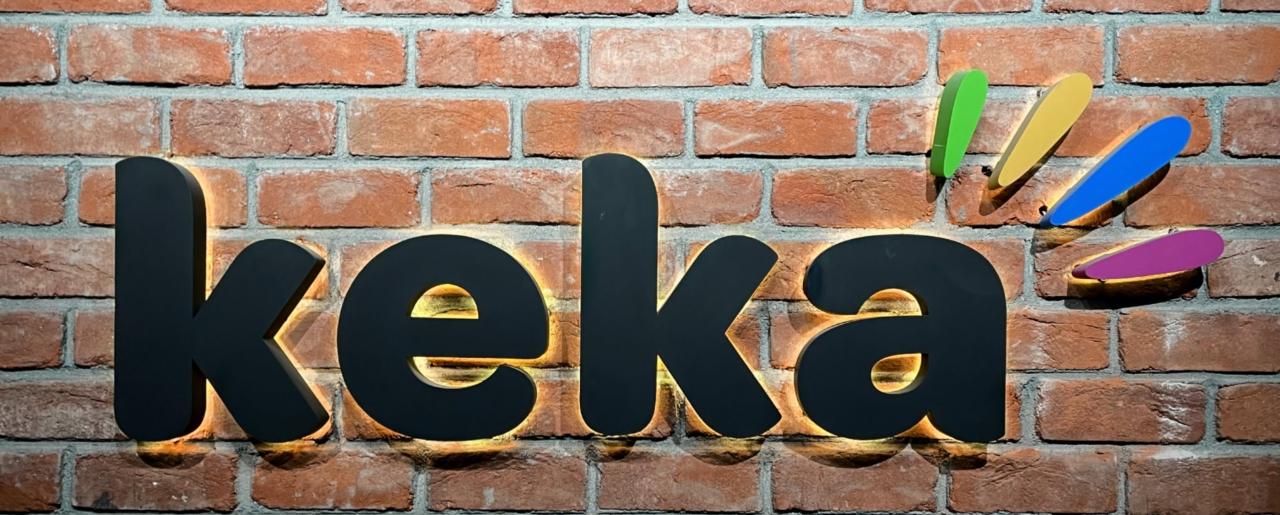Keka sets the stage for this enthralling narrative, offering readers a glimpse into a story that is rich in detail and brimming with originality from the outset. This exploration delves into the multifaceted nature of the word “keka,” examining its origins, cultural significance, and appearances across various domains of human experience. From its potential roots in different languages and cultures to its presence in popular culture, natural phenomena, and even technology, “keka” reveals a captivating tapestry of meaning and symbolism.
Table of Contents
The journey begins with a deep dive into the etymology of “keka,” tracing its potential roots and exploring possible interpretations of its meaning. We then journey through popular culture, uncovering how the word has been used in literature, music, film, and other forms of expression. The exploration extends to the natural world, where we discover phenomena, plants, and animals that are known or referred to as “keka,” highlighting their unique characteristics and cultural significance.
Keka

The name “Keka” holds a certain mystique, inviting exploration into its origins and potential meanings. While the name itself might not be widely recognized, its unique sound and structure suggest a fascinating backstory.
The Etymology of “Keka”
The etymology of “Keka” remains somewhat elusive, as it doesn’t appear to have a definitive origin in any single language or culture. However, its resemblance to words and sounds from various linguistic backgrounds opens up intriguing possibilities.
- Hawaiian: In Hawaiian, “keka” can mean “to be born” or “to come into existence,” suggesting a sense of creation and new beginnings. This interpretation aligns with the name’s potential association with innovation and progress.
- Sanskrit: The Sanskrit word “kēka” translates to “a kind of cake,” which might imply a sense of indulgence, celebration, and sweetness. This connection could be interpreted as a symbol of joy and fulfillment.
- Japanese: In Japanese, “keka” could be a variation of the word “keiko,” which means “practice” or “training.” This interpretation suggests a focus on development, improvement, and mastery.
Possible Meanings and Interpretations
Beyond its potential linguistic origins, “Keka” carries a symbolic weight that invites interpretation. The repetition of the “k” sound creates a sense of rhythm and energy, suggesting a dynamic and vibrant entity.
“Keka” could be seen as a representation of a force that is both powerful and adaptable, capable of navigating change and achieving growth.
Furthermore, the name’s association with creation and new beginnings could symbolize a forward-looking perspective, embracing innovation and progress.
Historical and Cultural References
While “Keka” might not have a direct historical or cultural reference, its evocative nature lends itself to various associations. For example, it could be linked to concepts of:
- Ancient Egyptian Mythology: The “ka” in “Keka” evokes the Egyptian concept of “ka,” which represents the vital life force or spirit of an individual. This connection could suggest a powerful and enduring essence.
- Native American Culture: In some Native American cultures, the repetition of sounds is used to enhance the power and significance of words. This practice aligns with the rhythmic nature of “Keka” and its potential symbolic meaning.
Keka in the Natural World
While the term “keka” might not be immediately associated with the natural world, it’s important to note that the word itself might have various interpretations and origins depending on the context and language. To explore its connection to nature, we need to understand its potential meanings and how they relate to natural phenomena, plants, animals, or geographical features.
Natural Phenomena Associated with “Keka”
It’s crucial to understand the potential meanings of “keka” in different contexts. In some cultures, “keka” might refer to a specific natural phenomenon, like a type of weather pattern or a celestial event. For example, in certain indigenous communities, “keka” might signify a specific type of storm or a particular constellation. However, without further context, it’s difficult to definitively associate “keka” with a specific natural phenomenon.
Keka in Human Activities

The term “keka” has a limited presence in human activities, and its usage is not widespread across various cultures or societies. However, there are some specific instances where “keka” holds significance, particularly in traditional practices and rituals associated with certain communities.
Traditional Practices and Rituals
In some indigenous cultures, the term “keka” might be associated with specific ceremonies or rituals. These practices often involve symbolic gestures, chants, or offerings intended to appease spirits, invoke blessings, or ensure good fortune. For example, in certain communities, “keka” might represent a ritual dance performed during harvest festivals to express gratitude to the earth and its bounty. These rituals are often deeply rooted in cultural beliefs and traditions, passed down through generations.
Keka in Technology
While “keka” itself may not be a widely recognized term in the tech world, the concept of “keka” as a playful, energetic, and sometimes mischievous entity resonates with certain technological innovations. We can explore how this concept might be applied to the world of technology, looking at instances where technology mimics or embodies these qualities.
Artificial Intelligence with a Playful Nature
The concept of “keka” aligns with the growing trend of artificial intelligence (AI) that exhibits a playful or creative nature. This type of AI, often designed for entertainment or user engagement, incorporates elements of humor, surprise, and unpredictable behavior.
- Chatbots with Personality: AI-powered chatbots are increasingly designed with distinct personalities, often incorporating humor and wit into their responses. These chatbots can be programmed to engage in playful banter, tell jokes, or even generate creative content, such as stories or poems. Examples include the AI chatbot “Mitsuku” and the Google Assistant.
- Interactive Games with AI Characters: Video games are increasingly incorporating AI characters that exhibit playful personalities. These characters might engage in playful interactions with the player, display humorous reactions to events, or even develop unique personalities based on player behavior. Popular examples include the AI companions in the “Fallout” series and the “Mass Effect” series.
Technology that Embraces the Unexpected
“Keka” can also be interpreted as a force that brings about unexpected and sometimes disruptive changes. This concept aligns with the rapid pace of technological advancement and the constant emergence of new innovations that challenge existing norms.
- Disruptive Technologies: Technologies like blockchain, artificial intelligence, and gene editing have the potential to disrupt established industries and create new markets. These technologies are often characterized by their unpredictable nature and ability to create unexpected outcomes.
- Emerging Technologies: The development of new technologies like quantum computing and brain-computer interfaces presents exciting possibilities, but also raises ethical and social concerns. These technologies have the potential to revolutionize various aspects of life, but their long-term impact remains uncertain.
Keka in the Future

The word “keka” carries a rich history and evolving significance. As technology advances and societal norms shift, the potential for “keka” to take on new meanings and applications is vast. This section explores how “keka” might be utilized in the future, considering its current and historical context.
Emerging Technologies and “Keka”
The future of technology is intertwined with the evolution of language. “Keka” could be integrated into emerging technologies in several ways. For example:
- Artificial Intelligence (AI): AI systems could learn to recognize and interpret “keka” in various contexts, potentially leading to more nuanced and accurate AI responses. This could be particularly relevant in fields like natural language processing, where AI is tasked with understanding and responding to human language.
- Virtual Reality (VR) and Augmented Reality (AR): “Keka” could be incorporated into immersive experiences, adding a layer of cultural significance or historical context to virtual environments. For instance, a VR simulation of a historical event could utilize “keka” to enhance the authenticity and emotional impact of the experience.
- Blockchain Technology: “Keka” could be used as a unique identifier or token within blockchain networks, potentially creating new opportunities for digital ownership and value exchange. This could be particularly relevant in areas like digital art or decentralized finance.
Conclusive Thoughts
This exploration of “keka” unveils a fascinating and multifaceted word that transcends language and culture. From its origins and potential meanings to its appearances in various domains of human experience, “keka” offers a glimpse into the interconnectedness of our world. As we delve deeper into its significance, we discover a word that is both intriguing and thought-provoking, leaving us with a deeper understanding of the power of language and the richness of human expression.
Keka is a popular HR and payroll software that streamlines various tasks for businesses. If you’re looking for a comprehensive customer support solution to complement your HR platform, you might want to consider integrating zoho assist. Zoho Assist can help you provide remote assistance to your employees, resolve technical issues quickly, and improve overall productivity.
Ultimately, both Keka and Zoho Assist can contribute to a smoother and more efficient workflow for your company.
